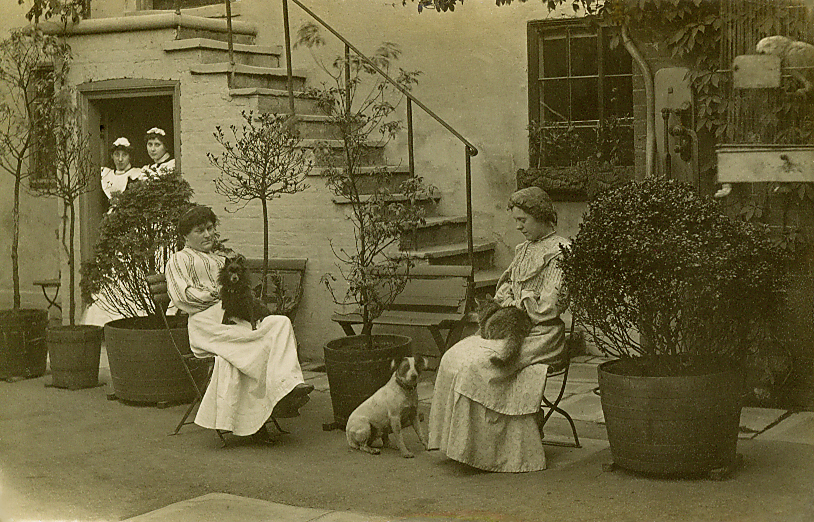The back yard of The Darby and Joan Hotel, High Street, Crowle, Lincolnshire, England
What unobtrusively wonderful novels! The more I think about them, the more interesting and good I consider them to be; they reward a slow chewing-over. They’re also resistant to lazy reading; they don’t invite the reader in–they don’t encourage interpretation or identification or any of the reader’s typical crutches. But on the other hand, the plain prose style, heavy on everyday dialogue, deliberately abstains from warning the reader that she’ll be encountering an intricately constructed work of art.
I could say a great deal about Green’s treatment of class, gender, sex, failure, propriety, hope, and love, and his wonderful way of showing how Living and Loving and Party Going are all manifested through work (or, signally, the lack thereof)–**spoiler** Loving (1945) happens in a butler’s hiding from his employers that the housemaid has stolen their peacock eggs to concoct facial masks; Living (1929) happens in an old foundry-worker’s determination to arrange the marriage of the young girl he wants to be his caretaker in old age; Party Going (1939) happens when a group of people who don’t like each other, who have nothing in common besides their lack of anything better to do than to form a house party, are locked down in a train station hotel to protect them from thousands of angry, stranded commuters. Wonderful stuff!
Read: August 2009
